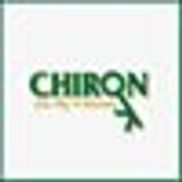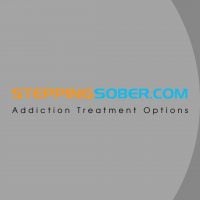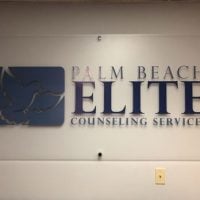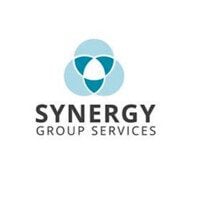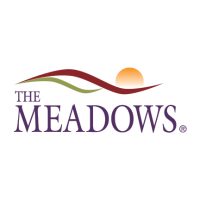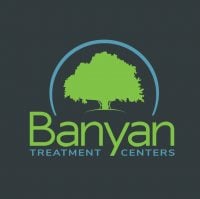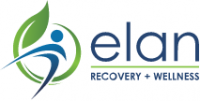Lumiere Detox Center
Drug Rehab Center in Jupiter, Florida
The Lumiere Detox Center in Jupiter, FL is an accredited, top-rated addiction treatment facility that offers a variety of detox, drug rehab, dual diagnosis and outpatient services provided by experienced and licensed professionals to help patients achieve sobriety.
Multiple patients have reported Lumiere Detox Center as permanently closed.
Research other rehabs in Jupiter, Florida, or get help finding an open facility.
About Lumiere Detox Center in Florida
Lumiere Detox Center, located in Jupiter, Florida, is a premier addiction treatment facility focused on helping individuals overcome substance abuse issues. With a capacity of 30 beds, Lumiere Detox Center provides a comprehensive and personalized approach to recovery.
• Accredited by the Joint Commission on Accreditation of Healthcare Organizations (JCAHO), SAMHSA, and LegitScript, ensuring high-quality care and adherence to industry standards.
• Offers a wide range of evidence-based treatments, including detox, residential and outpatient programs, dual-diagnosis therapy, and aftercare support.
• Provides sober-living and halfway levels of care for patients requiring additional assistance in their recovery journey.
Lumiere Detox Center is licensed by the State of Florida and employs a team of experienced professionals dedicated to helping individuals achieve lasting sobriety. Their treatment plans are tailored to each patient's unique needs and may include individual therapy, group therapy, recovery education, physical and mental health evaluations, family therapy, relapse prevention, and skills training.
The facility specializes in treating addictions to alcohol, opioids, and other substances. They offer medication-assisted treatment to help manage cravings and withdrawal symptoms, as well as aftercare resources and support groups for alumni and their families.
Genders
Ages
Modality
Additional
Accreditations
State License
SAMHSA

LegitScript

JCAHO
Conditions and Issues Treated
It’s not easy getting sober on one’s own, or even going to rehab and escaping the grasp of addiction by oneself. Substance abuse treatment gives addicts a place to stay sober while learning what it takes to quit for good. They will learn from others about what works and what doesn’t work with remaining drug-free.
Treatment centers such as Lumiere Detox Center focus on the needs of individual addicts to heal them. There is a combination of physical and mental therapies that treat the root cause of the addiction, whether it be family problems, stress, or past traumatic events.
The final benefit of substance abuse treatment is introducing new people who can help in your recovery after you leave Lumiere Detox Center. Through group therapy sessions with other addicts and attending support meetings once a day, a person will learn how to interact with others and cope with cravings. This is a chance for you to rebuild your social circle healthily after you leave treatment.
Opioid addiction starts when a person becomes addicted to legal or illegal opioids. The addiction can happen quickly, in just a matter of days. Opioid withdrawal can be extremely uncomfortable and lead the user to continue to use even if they want to quit. Stopping using an opioid requires medical observation. Sometimes inpatient treatment with a medically supervised detox is necessary for managing the withdrawal process while learning lasting tools for maintaining recovery. Medications may be used in some cases of opioid addiction.
Opioid addiction is one of Florida‘s most prominent forms of addiction. It’s treated by detoxifying the body so that the chemicals from the medications no longer impact them and by therapies to correct behavior and target the root of the problem.
Recovery is not simply about stopping drug use. Recovery is working with addiction while recovering mental health issues that are fueling the addiction in the first place.
Levels of Care Offered
This center offers a variety of custom treatment tailored to individual recovery. Currently available are Aftercare Support, Detox, Drug Rehab, Dual-Diagnosis, Outpatient, Residential, Sober-Living / Half-Way, with additional therapies available as listed below.
Detox is the first step of rehab. It involves giving a person time to get the toxins out of their body. During detox, the patient gets ill and they will often start using again to get rid of these unpleasant feelings. That’s why it’s so important to have a Jupiter medical professional at Lumiere Detox Center present. A Florida medical professional will make sure patients don’t start using during detox. They will also provide medication to ease their symptoms and coach them through on a mental level.
Outpatient treatment is considered the lower intensity level of addiction treatment. It’s ideal for early phase addiction or lower intensity addictions. It may include weekly sessions instead of daily. It may include weekly sessions instead of daily. Peer group support, 12-step programs, and individual counseling may still be involved but at a lesser frequency than an intensive outpatient program. It is a good choice for someone who doesn’t need to go through a medically supervised detox and who has a supportive home environment. It requires motivation and dedication to commit to the program without constant monitoring.
Sober living homes (abbreviated SLHs or sometimes sober houses) are temporary housing for recovering addicts. The typical SLH functions as a halfway house, providing a stable living environment for addicts in recovery. While at an SLH, residents typically meet with various therapists on site and attend regular 12-step meetings as well as other recovery group meetings.
Residential treatment programs are those that offer housing and meals in addition to substance abuse treatment. Rehab facilities that offer residential treatment allow patients to focus solely on recovery, in an environment totally separate from their lives. Some rehab centers specialize in short-term residential treatment (a few days to a week or two), while others solely provide treatment on a long-term basis (several weeks to months). Some offer both, and tailor treatment to the patient’s individual requirements.
Aftercare support should take place after outpatient treatment has ended. There are a few different types of aftercare support that patients can seek. These include 12 Step, Self-help groups (AA, NA), Therapeutic communities, Long-term, structured sober living arrangements, and Halfway houses (residential treatment centers).
Therapies & Programs
Individual therapy involves one-on-one sessions between the patient and therapist. It provides patients with a safe environment to openly discuss personal and sensitive issues with the therapist. They find the therapist as someone they can trust. Individual therapy aims to identify the core issues that would have led the patient to substance abuse and address them effectively. The therapist can develop patient-specific customized solutions through individual therapy, which aids speedier recovery.
Couples therapy works with clients and significant others in a professional capacity to improve relationship dynamics. This can be helpful for addicts who are trying to marry the idea of recovery into their work, family, social lives – any aspect that has to do with relationships.
Through counseling sessions, addicts will have an opportunity to talk about their addiction with professional partners. These partners can offer feedback and advice on how to get sober while keeping healthy relationships intact. A good couples therapist will help addicts understand their part in an unhealthy relationship dynamic or find ways to deal with anger or resentment from significant others outside of the home.
Family therapy is a group problem-solving that aims to improve communication and relationships between the addict, their family, and sometimes friends. The main goal of family therapy for drug addiction is to create an environment where communication can occur without judgment, hostility, or blame. The therapist is with the family as they learn to communicate differently, especially with the addict when s/he is using. The family can learn to reduce their enabling behavior or rally together and support each other during tough times.
An addict’s family can play a vital part in helping them to avoid relapse because they can spot the warning signs and help them get back on track before it becomes too much of a problem. Family therapy is one of the most effective ways to help addicts stay on the path to long-term sobriety. When a drug addict decides that they want to try and get sober, it takes the support of every person they love to succeed. It can be incredibly difficult for loved ones to watch an addict go through the pain and suffering of withdrawal, but by being there with them and supporting them, they can help to make sure that the addiction never returns.
Groups typically involve meetings with other recovering addicts who can relate to one another’s experiences. They might meet in person or online and typically focus on the process of staying sober rather than overcoming a specific addiction.
In these groups managed by Lumiere Detox Center, addicts can build a sense of community and develop strong emotional connections with others who understand what they are going through. These beneficial relationships can help addicts overcome their cravings and prevent relapse at any point during the recovery process.
Payment Options Accepted
For specific insurance or payment methods please contact us.
Is your insurance accepted?
Ask an expert, call (888) 674-0062
Additional Details
Specifics, location, and helpful extra information.
Jupiter, Florida 33458 Phone Number(855) 535-8501 Meta DetailsUpdated April 15, 2024
Staff Verified
Is Lumiere Detox Center a LegitScript Verified Treatment Facility?
According to our most recent records, we have found this center to be LegitScript verified.
Lumiere Detox Center Patient Reviews
There are no reviews yet. Be the first one to write one.
Jupiter, Florida Addiction Information
Florida is one of the nation's epicenters for substance abuse and drug-related overdoses. In 2014, around 410,000 Florida residents were addicted to drugs and alcohol. Over the last 10 years, 12% of all deaths in the state were attributed to substance abuse. Treatment admissions for alcohol reached 24,329 patients in 2016, and 2.5% of Florida high school students admitted to using crack cocaine.
Jupiter, Florida, is a city with an estimated population of 60,597 (2016) people. 9,000 people in Jupiter struggle with drug addiction. This accounts for about 7% of the population. 23% of adults admitted to using illicit drugs in their lifetime. Common drugs abused in Jupiter are heroin, cocaine, and prescription drugs. The best way to find a facility in Jupiter is to ask for referrals from friends or family.
Treatment in Nearby Cities
- Cokato, FL (1,476.6 mi.)
- Altoona, FL (168.4 mi.)
- Ocala, FL (198.3 mi.)
- Brooksville, FL (178.0 mi.)
- Palm City, FL (18.2 mi.)
Centers near Lumiere Detox Center
The facility name, logo and brand are the property and registered trademarks of Lumiere Detox Center, and are being used for identification and informational purposes only. Use of these names, logos and brands shall not imply endorsement. RehabNow.org is not affiliated with or sponsored by Lumiere Detox Center.





